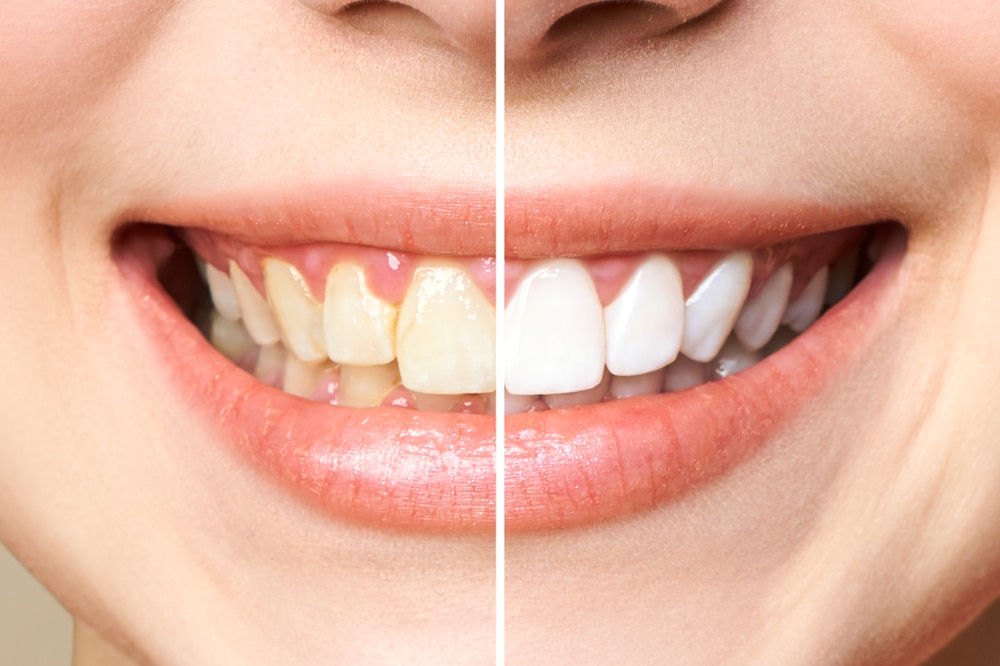Nobody looks forward to sitting in a dentist’s chair while you get your mouth numbed and then have to watch the dentist drill and file your teeth for several hours. Heck, some can’t even get passed those stubborn mouth x-rays. That means you may skip the dentist more than you should, or all together. Sure, you brush and floss two times a day, but is that really enough? Probably not. You may have some habits that are absolutely destroying your teeth. Please keep reading to learn about bad habits that many people do without realizing they are harming their oral health. Try to stop right away if you do any of these habits that destroy your teeth!

32. Whitening Your Teeth Excessively
We all want a shiny white smile, but if you are whitening your teeth regularly, you may be doing a lot of harm. Over-the-counter teeth whiteners and especially homemade remedies can weaken the enamel of your teeth and cause it to erode when you brush. In addition to causing enamel loss, teeth whiteners can expose the nerves in your teeth, leading to teeth sensitivity. If you want your teeth to get whitened, schedule a whitening with your dentist or ask at your next dental check-up what whitener he or she recommends. The last thing you want is teeth that look white but are decaying as a result.
